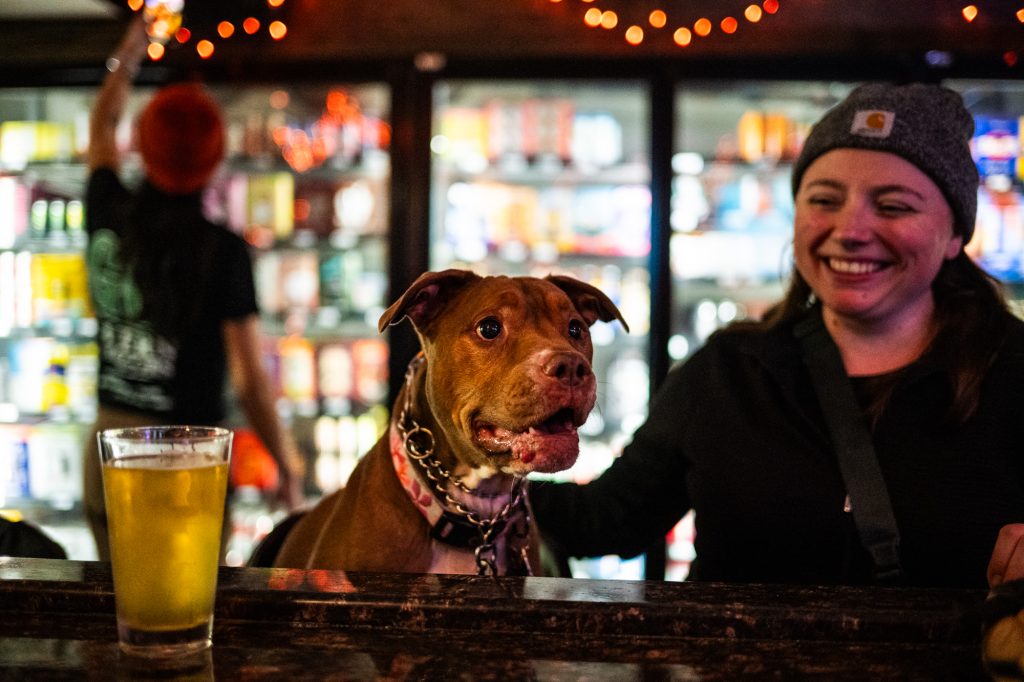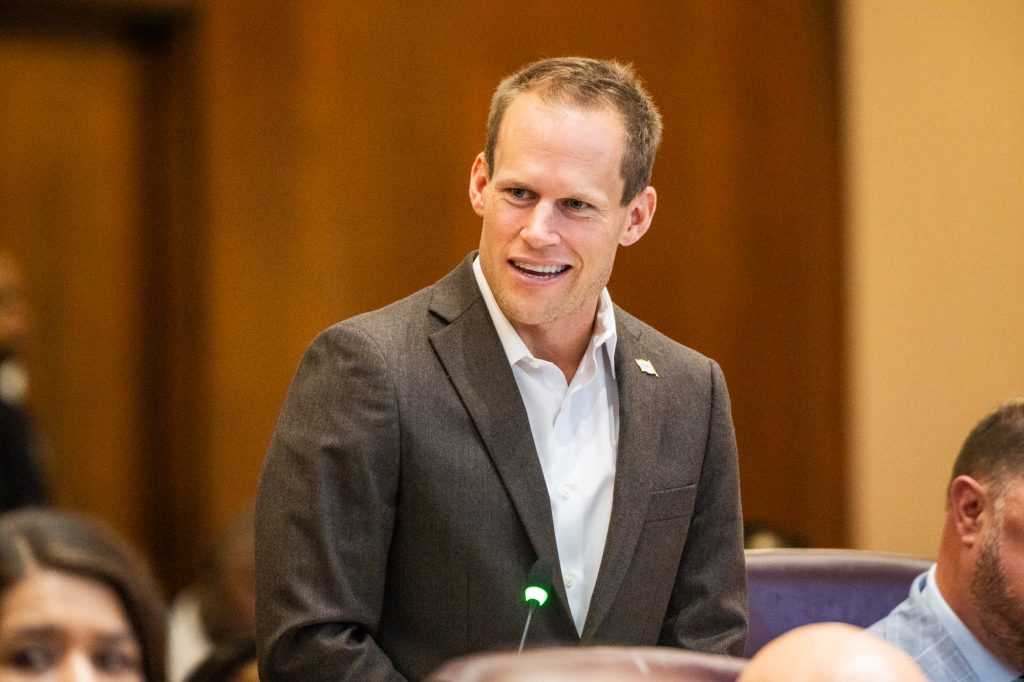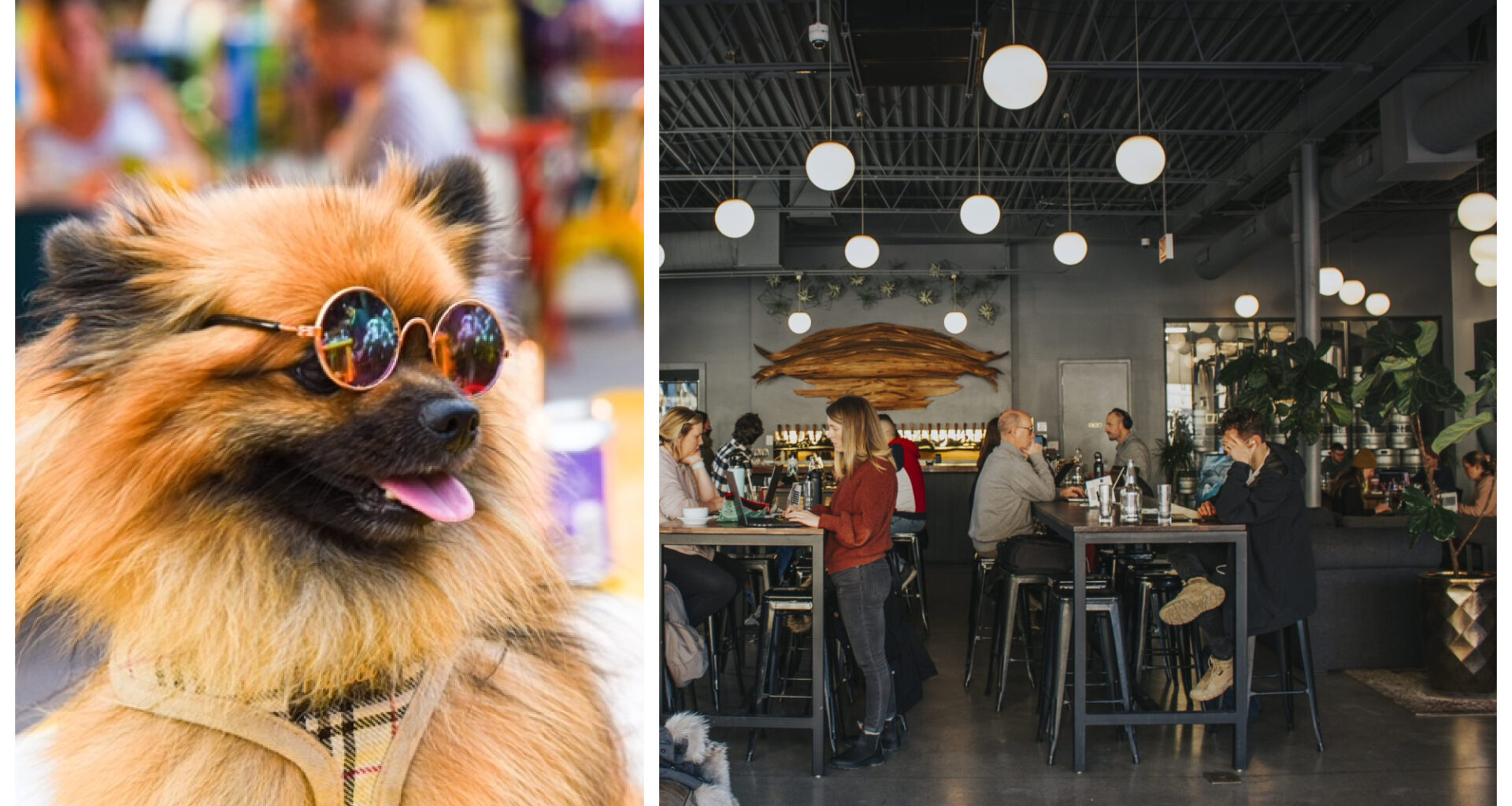LINCOLN PARK — Chicago restaurants could soon have the option to allow dogs indoors under a new ordinance that will be pitched to the City Council this week.
Ald. Timmy Knudsen (43rd) is introducing an ordinance that would let restaurant owners choose to allow dogs inside their businesses. Knudsen said the idea is aimed at giving small businesses more flexibility and dog owners more freedom to stop in a coffee shop or restaurant while on a walk with their four-legged friends.
The measure, which goes before City Council on Thursday, would overhaul city code that currently bans dogs from retail food establishments, except for service animals. Restaurants that want to participate could register as “dog-friendly” businesses by posting signs at their entrances and following a set of health and safety rules.
Under current city law, restaurants can’t allow dogs inside or on patios unless the animal is a service dog.
In practice, though, plenty of places bend the rules. Enforcement usually comes only if someone files a complaint, leaving business owners vulnerable to surprise inspections and possible fines.
Knudsen’s proposal was partly inspired by Sophie Evanoff, owner of Lincoln Park’s Vanille Patisserie at 2108 N. Clark St.
Evanoff was hit with multiple health inspections after patrons reported dogs inside her shop, and those inspections eat up hours of a business owner’s time and add stress, Knudsen said.
“It’s usually several hours on the phone, a lot of preparation goes in and really puts business owners on edge,” Knudsen told Block Club. “We all know that a lot of businesses have been turning a blind eye to this for a while, but why isn’t there an option?”
 Lily the dog sits with her owner Shannon at the bar of GO Tavern and Liquors, 3219 W. Armitage Ave., which is a favorite dive bar in Logan Square — as seen on Nov. 12, 2024. Credit: Colin Boyle/Block Club Chicago
Lily the dog sits with her owner Shannon at the bar of GO Tavern and Liquors, 3219 W. Armitage Ave., which is a favorite dive bar in Logan Square — as seen on Nov. 12, 2024. Credit: Colin Boyle/Block Club Chicago
Knudsen worked with the Chicago Department of Public Health and other small businesses to craft a compromise: Let restaurants opt in, but only if they follow a rule book.
Stipulations in the proposed ordinance include only one dog per patron, dogs must be on a leash at all times and canine friends must have proof of their rabies vaccination, among others.
Dogs won’t be allowed near kitchens or food prep areas, can’t be fed inside and cannot come into contact with plates, utensils or surfaces under the proposed measure.
Employees of these restaurants, no matter how friendly the four-legged friends are, are not allowed to pet or touch the dogs while working with food, per the ordinance.
Businesses that opt in would need to use washable surfaces for tables and floors and report any dog bites to 311. Violations could bring fines ranging from $200 to $1,000 per offense, and repeat violations could trigger license suspension.
“I do want to stress that the ordinance is only for businesses that really want to sign up for this,” Knudsen said. “At an extreme, I’ve heard people ask, ‘You’re going to require that a dog can be sat next to me at Alinea?’ That’s just not the case. There are certain restaurants that would never consider opting into this. But they don’t have to.”
Knudsen said he sees the measure as not just helping restaurants but also strengthening neighborhoods. Allowing dog owners to spend more time with their pets at local cafes encourages pet ownership, safer communities and local businesses, he said.
“For me, it gives business owners the power to run their business and market their business as they want to,” he said. “I think that’s a really powerful thing at a time when businesses are mostly having requirements put on them.”
 Ald. Timmy Knudsen (43rd) speaks during a City Council meeting on July 16, 2025. Credit: Colin Boyle/Block Club Chicago
Ald. Timmy Knudsen (43rd) speaks during a City Council meeting on July 16, 2025. Credit: Colin Boyle/Block Club Chicago
The city’s Department of Business Affairs and Consumer Protection and the Department of Public Health would enforce the rules. If passed, the changes would take effect 90 days after approval.
Knudsen said he’s already gotten early support from colleagues and restaurant industry leaders, but he’s open to adjustments if issues come up.
“If there is opposition, I’m someone who wants to make ordinances that work,” he said. “We can never make things work for everybody, but if there are unintended consequences, we can make sure they’re fixed by the process of talking to colleagues, advocacy groups and other groups who might be affected.”
Listen to the Block Club Chicago podcast:
